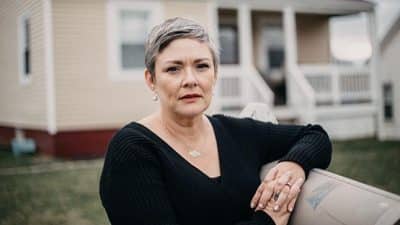
Election year jitters, and a clear partisan majority in both houses, make it less likely we will find ourselves at a stalemate this year. Medicaid expansion, the issue that held the General Assembly up last year, has been shoved aside. Many Republicans acknowledge that the policy reasons for Virginia expanding Medicaid are compelling. Virginia’s economy could use the $2.5 billion bump that would be fully funded by the federal government through 2016 and that health insurance for 400,000 people who are currently uninsured would be a boost to Virginia’s economy and health. The problem is political. Virginia’s working poor took a backseat to election year politics.
Both the House and Senate have passed versions of the budget that appear to be close on most issues, thus the optimism about an early adjournment. The last two weeks of the General Assembly will be spent working out the differences in a conference committee. I will only touch on a few areas of the budget.
Because revenue projections have improved since last December, both the Houseand Senate included money in the budget for pay increases for public employees. The Senate bumps up the salaries of state and state-supported local employees by three percent, two percent for college faculty, and 1.5 percent for the state share for public school teachers. The Senate budget includes $5.8 million generated by Senator Carrico’s bill I discussed last week to address salary compression issues at the Virginia State Police.
The Senate and the House proposals incorporated the Governor’s priorities with respect to K-12 education. The budgets adopted by the House and Senate yesterday do not cut funding to our public schools The increased revenue, which has allowed some flexibility with this year’s budget, should not be viewed too optimistically. The economy is changing in dramatic ways, and we must diversify. As a result, many of the increases enjoyed in this revenue spurt are being spent on one-time expenses rather than being built into the base budget. The Senate in particular agreed with the Governor’s recommendation of $50 million for school construction and to subsidize interest rates for school divisions with an additional $25 million.
The Governor also proposed using $537,000 for new school breakfast program designed to encourage all school divisions to serve breakfast. The Senate budget targets this program only at elementary schools where free and reduced lunch eligibility exceeds 45 percent.
Last year I feared the legislature would lose focus on the importance of revamping mental health services in Virginia. We took some steps last year but much work remains. The budget proposals adopted this week allay my fears. Both the House and Senate infused significant funding into an array of services. The Senate provided new money for permanent supportive housing, two new PACT teams, and for child psychiatry and crisis response. The House included some of those priorities but also provided funding for four new therapeutic drop-off centers. While the differences need to be worked out, I am heartened to see the continued commitment of my colleagues to improve services in Virginia.
An area of interest to many of my constituents is transportation funding. For the first time in many years, the administration actually has some transportation money to spend. The transportation funding formula, which historically has benefited rural areas, has not been working since 2009. The money which fueled those formulas has slowed to trickle. With the passage of House Bill 2313 in 2013, additional dollars are flowing to transportation. While the slowdown in the economy diminished those anticipated funds, there are at last dollars flowing to much needed transportation projects.
A couple of bills, HB 1886 and HB 1887, have been introduced Delegate Chris Jones with the support of the McAuliffe administration. The legislation does not change many of the basic principles of the formula, but divides the money up into different pots. The end result is that each district should be getting roughly the same or more money than in prior years, but the money will be targeted in different ways.
Under these proposals, forty percent of the money will go into what will be known as “state and good repair” purposes, which includes major bridge and overpass reconstruction and other significant maintenance projects. That money will flow into each of the transportation districts.
Thirty percent will go to a statewide fund for “high priority” projects, which are defined as “projects of regional or statewide significance” that address such things as congestion, safety, economic development or environmental quality. Projects that might fit into this project include the Route 220 project in Botetourt and Alleghany Counties. The road project not only cuts across county lines but cuts across transportation districts and is clearly a project with regional and even statewide significance.
The remaining thirty percent of funds go to “highway construction districts” grant programs. These are projects that are high priorities within each district.
We are still working through all of the details of the bills, and I am honored to serve on the subcommittee responsible for reviewing the legislation. I am hopeful that the end result will provide real opportunities to move forward on critical transportation projects throughout Virginia.
It continues to be my high honor to serve you in the Senate of Virginia. Please let me know if you if I can be of service to you in any way. You can reach my office during the legislative session at PO Box 396, Richmond, VA 23218,[email protected]
Creigh Deeds is a Virginia state senator.










